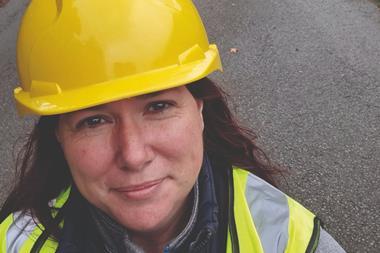After two years of unprecedented challenges faced by real estate, experts share their predictions for 2022.

John Spencer
Chief executive, BizSpace
This year will be another eventful one; with further Covid restrictions, there will be a need for a forward-thinking and flexible approach. In the flexible workspace sector, localism will continue to flourish as companies invest in a hub-and-spoke model of working.
As a result, I anticipate strong uptake in regional occupancy demand and the need for cost-effective workspaces. Following Sirius’s acquisition of BizSpace in 2021, I’m excited for the year ahead as we work with the Sirius team to leverage potential advantages and continue evolving our offering to provide the best service for our customers.
Brian Klinksiek
Head of European research and global portfolio strategies, LaSalle IM
While Omicron has reintroduced uncertainty, we expect its impact to be less severe than previous waves and many trends point to a rebalancing of property markets away from Covid-driven dislocation continuing in 2022.
Importantly, climate change will remain a priority for investors, developers and occupiers alike. Offices have been the forerunner in carbon reduction, but we should soon see more momentum among other sectors. London will retain its position as a top destination globally, and the top destination in Europe, for real estate investment. We expect the return to offices to resume, with occupiers prioritising more space for collaboration.
Experiential and hospitality venues will similarly recover, with vibrant city centres demonstrating their resilience. Shopping centre valuations may have reached their nadir, while retail warehouses unsurprisingly continue to whet investors’ appetite and the incredible growth of industrial assets in the UK is being replicated in Europe.

Ted Schama
Joint managing partner, Shelley Sandzer
Without dwelling too much on the obvious, the hospitality sector used most, if not all, of its cards in 2021: CVAs, lease restructuring, furlough, VAT and rates breaks. Despite the ongoing challenge of changing guidelines, I expect early 2022 to prove the final challenge, as the rent moratorium ends with no relief available.
I suspect there will be a tricky Q1 and Q2 for the F&B sector, with staffing and inflation issues, but on the flip side, there is a united understanding that people are keen to move on and live their lives, and that means tourism.
Those that survive can thrive. The later parts of 2021 showed there were rewards on offer; people’s love for bars and restaurants and the desire for a return to normality remain undiminished. It may not be the roaring ’20s quite yet, but as long as people support the high-quality establishments, success stories will emerge.

Charles Weeks
Head of European and Asia-Pacific real estate, Barings Real Estate
While current Covid variant concerns could delay recovery in European offices, they will not prevent markets gaining traction further into 2022. While total vacancy might remain elevated, grade-A supply will remain tight as increased pre-letting activity confirms corporate desire to build brands, benefit from face-to-face contact and focus on ESG.
The case for rental growth in grade-A offices remains strong – the pre-pandemic shortage across major western European cities before the pandemic has been further exacerbated by the recent surge in construction costs, scheme delays and pressures on developer viability.The quid-pro-quo for investors with poorer-quality space is an acceleration in the pace of obsolescence and higher capex needs.
Location will still matter – we prefer cities with strong demographics and innovative business cultures – but asset quality and ESG ratings will be a greater performance determinant. Deal sourcing and stock selection will be more important than ever to navigate the post-pandemic office market.
Continue to part 41 here
Predictions for 2022: Brace yourself…
- 1
- 2
- 3
- 4
- 5
- 6
- 7
- 8
- 9
- 10
- 11
- 12
- 13
- 14
- 15
- 16
- 17
- 18
- 19
- 20
- 21
- 22
- 23
- 24
- 25
- 26
- 27
- 28
- 29
- 30
- 31
- 32
- 33
- 34
- 35
- 36
- 37
- 38
- 39
- 40
- 41
- 42
- 43
- 44
- 45
- 46
- 47
- 48
- 49
- 50
 Currently reading
Currently readingPredictions for 2022: Brace yourself (part forty)
- 51
- 52
- 53




















































































No comments yet